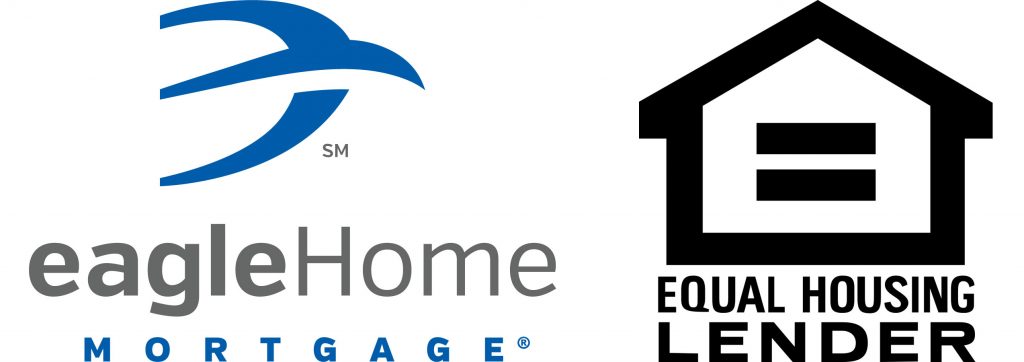This article is based on research by the author, who is not a financial, tax, or legal professional. This article does not reflect the views of Lennar Corporation or its affiliates. It is not intended to provide any financial or legal advice, and you should consult your own financial or legal advisor, loan professional or credit expert for more information about credit scores and loans generally or your credit score specifically.
Do I need a perfect credit score to buy a home?
It depends on what you mean by “perfect.” The highest score possible is 850, but that number is almost impossible to achieve. Impossible becomes unnecessary. A lender is not going to require a score of 850 for every loan qualification.
Scratch the word perfect. The concept of perfect is itself a myth. Ask instead: do I need a high credit score to buy a home? The answer is no. Then, why does a lender care about this number? Your credit score says a lot about your dependability as a borrower, and it can influence features of your loan, including your down payment and interest rate. An explanation of these items follows in the next section. However, a low credit score does not necessarily mean you cannot qualify for a loan, and we will look at those loan types that support this.
What are the benefits of a high credit score?
By definition, your credit score is a three-digit number, ranging from 300 to 850, that appraises your creditworthiness. It tells a lender if you are reliable to repay a loan, based on your credit history. Your credit history includes your payment history, credit use, credit age, (recent) credit inquiries, and derogatory marks. It also shows the number (and types) of open (and closed) credit accounts you own. Credit accounts can be credit cards, student loans, auto loans, home loans, or other loans.
Credit scores are risk indicators. To a lender, a higher score means a lower risk. A lower risk of what? Of you (the borrower) defaulting on the loan. To default means you fail to pay the monthly mortgage payment and fall behind. A lower score translates to a higher risk. The lender might still approve the loan, even if your score is as low as 500, but there are likely conditions to offset the risk. The first is that you make a bigger down payment. A larger down payment means you borrow less money. It lowers the loan-to-value ratio (i.e., the ratio of a loan to the value of a home) and shows how sincere you are about this investment. The second condition is a higher interest rate. The lower your credit score, the more interest you will pay over the life of the loan.
Based on those conditions, a low credit score could cost you more money. This then raises new issues. Can you afford these expenses? Maybe not: not if you have a low income, or worse, you already have outstanding debt. If you can afford it, will this change how much home you can afford? Will you have to settle for a smaller place to live? Before you panic, know that there are solutions to a low credit score.
In the next section, we briefly review the credit score requirements for the most common loan types. Not all lenders are the same, and credit score requirements can vary by location. You should consult a loan professional for additional guidance into those loan options that best suit your credit score situation.
What are my loan options for a low credit score?
The best way to explain this is to start with a high credit score and discuss your changing loan options as that score decreases. Keep in mind: there are other factors, including your income, debt, assets, down payment, and employment history, a lender must consider before loan approval. Even if you have a credit score of 800, you may not qualify for a loan if there are discrepancies with the aforementioned factors.
Jumbo loans require a credit score of 700 or higher. These loans finance the purchase of luxury homes and estates exceeding the loan limits set by the Federal Housing Finance Agency. In 2020, that amount is over $510,400.
USDA loans, backed by the U.S. Department of Agriculture, require a minimum credit score of 640. This loan option might be your best if you wish to live in rural or suburban surroundings.
Conventional loans, also known as conforming loans because they conform with the underwriting requirements and loan limits set by Fannie Mae and Freddie Mac, allow a credit score range of 620 to 680. A score of 680 is necessary if you hope to make a down payment less than 20%. If this occurs, a lender will require you to pay additional monthly fees for private mortgage insurance (PMI) until you accrue 20% equity (i.e., a term for unencumbered ownership) in your property.
VA loans, guaranteed by the Department of Veterans Affairs, often accept military applicants with a credit score between 580 and 620. The credit score benchmark for this loan type is set by the lender. Additional terms of applicability will vary between a serviceperson, a veteran, or a military spouse.
FHA loans, insured by the Federal Housing Administration, accept low credit scores in the range of 500 to 580. With a score of 580, you can make a down payment as low as 3.5%. The minimum score of 500 is accepted with the required 10% down payment.
Each of these loan types has special preconditions and additional requirements for approval. You can learn more here, but again it is encouraged that anyone seeking a loan discuss their options with a loan professional.
How do I fix a bad credit score?
It can take six months to a year to see a positive change in your credit score. If time is not an issue, and you want to improve your score before applying for a loan, great! All the more benefit to you: you might use that time to save money for a bigger down payment – just a thought.
First and foremost: how do I check my credit score? Without going into too much detail, there are three credit bureaus – Experian®, TransUnion®, and Equifax® – that maintain records of your credit history. You can request a free copy of your credit report once a year at AnnualCreditReport.com. When you have your report, check the bureaus have the correct information. If you see errors, you can file a dispute with the respective credit bureau, launching an investigation to get the matter resolved. Checking your report can also reveal proof of identity theft or credit card fraud.
Next: understand the components of your credit score. There are two credit-scoring models, VantageScore® and FICO®. We will go over the FICO model, as it is the preferred model for mortgage lenders1. The model created by Fair Isaac Corporation (FICO) groups data in your credit history to determine your credit score (or FICO score). The following percentages show the influence of each category on your score:
- Payment history (35%)
- Amount owed (30%)
- Credit age (15%)
- New credit (10%)
- Credit mix (10%)
If you are building credit from scratch, here are a few things you can do:
- Open a credit account
- Make small charges
- Do NOT max out your credit line
- Pay bills on time, every time
Do not apply for several credit accounts at once. Each application creates an inquiry on your credit report, and too many inquiries can hurt your score. Space out your applications over a reasonable number of months. Be sure to take on only what you can manage to pay off.
If you are trying to improve your credit score, take the following actions:
- Pay all your bills on time
- Pay off debt
- Keep balances low
- Do NOT open new lines of credit
- Do NOT close old accounts
On those last two bullet points: Until you are in good standing with your existing creditors, avoid opening new accounts and incurring hurtful inquiries. Closing old accounts can hurt your credit score as well. Old accounts reflect your dependability and responsibility as a borrower, so leave those open, even if they are unused accounts, so long as they do not charge you monthly or annual fees.
Building your credit score, as mentioned, takes time. As time passes, negative marks on your credit report should drop off. Late payments (or delinquencies), collections, and tax liens can take up to seven years to disappear. The same can be said for charge-offs which are debts you owe that a creditor reports as a loss. Bankruptcies can stay with you for as long as 10 years, and inquiries typically drop off in two years.
You can learn more about the steps to improving your credit score from the sources below. Otherwise, consider asking a credit expert at one of the bureaus about the impact and improvement of your credit report.
In conclusion…
You do not need a high credit score to buy a new home. However, if you feel the benefits of a high score are worth the wait to purchase, you can take the necessary actions to clean up your credit history. If you would like to learn more, Lennar’s affiliated mortgage company, Eagle Home Mortgage, and its loan officers can answer your questions. Eagle also offers free credit guidance through the HBSG Credit Program of its Home Buyer Solutions Group (HBSG).
Additional Sources
A Guide to Understanding Your Credit from Eagle Home Mortgage
On Credit Scores and Mortgages…
How Credit Impacts Home Pricing by Eagle Home Mortgage (2019)
What Credit Score Do You Need to Buy a House? by Rebecca Lake (September 2019)
How Do Lenders Evaluate Credit? by Eagle Home Mortgage (2017)
On Building and Improving Your Credit Score…
Your FICO Score – A Key Piece of the Puzzle by Eagle Home Mortgage (2017)
Your FICO Score Range and Why It Matters by Eagle Home Mortgage (2017)
Surprising Things You Didn’t Know Affect Your Credit Score by Eagle Home Mortgage (2017)
Don’t Let Credit Bumps Hold You Back by Eagle Home Mortgage (2019)
How to Build Credit from Scratch by Tim Devaney (July 2019)
4 Habits to Help You Build Credit by Eagle Home Mortgage (2017)
A Simpler Path to Homeownership with Credit Solutions by Eagle Home Mortgage (2019)
Disclosure:
Eagle Home Mortgage is an affiliate of Lennar Corporation. See Affiliated Business Arrangement Disclosure. Use of Eagle Home Mortgage is not required to purchase a home from Lennar.
This is not an offer in states where prior registration is required. Void where prohibited by law. Copyright © 2020 Lennar Corporation. Lennar, the Lennar logo, Eagle Home and the Eagle logo are U.S. registered service marks or service marks of Lennar Corporation and/or its subsidiaries. Date 04/2020. Eagle Home Mortgage, LLC – NMLS # 1058




